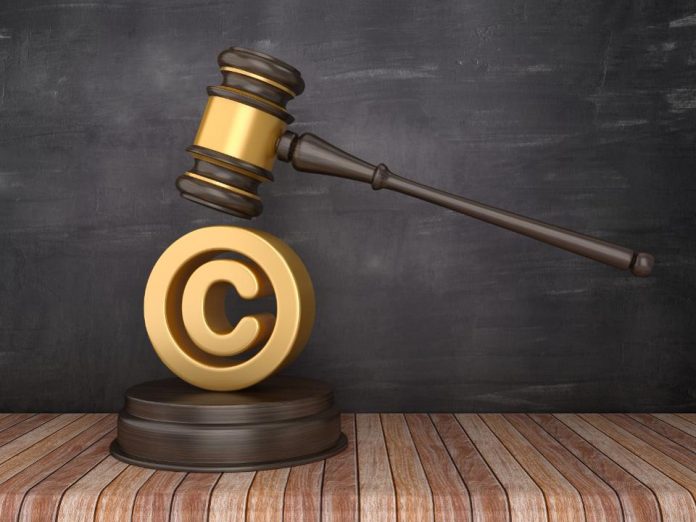This article is written by Gitika Jain, from Amity University, Kolkata. This article deals with statutory licensing in India.
Table of Contents
Introduction
In the last few decades the manner in which people utilise media has been changing very promptly. People have increasingly been utilising forms of media like smartphones and other gadgets to listen to music, watch movies, etc. With the introduction of companies like YouTube, Spotify, Hotstar, Netflix, and Amazon Prime in the early 2000 and the late 1990s, the 21st century has increasingly been streaming on these apps. In remote areas of the country, people have increasingly been using online streaming websites because of great internet connectivity. This takes consumers to a place full of options to decide what content they want to see depending on the choices they have.
Therefore, there was a need for introduction of Section 31(D) under the purview of Copyright Act, 1957 which was an attempt to bring streaming services and internetwork costing under the control of the section of the Act which was introduced in 2012. So, Section 31D under Chapter VI of the Copyright Act provides for statutory licensing which deals with the broadcasting of literary and musical works and sound recordings.
Scope of Section 31D and statutory licensing
Through the 2012 amendment, Section 31D was incorporated in the Copyright Act which was made to provide the right of royalty to the authors and it made it mandatory for corporate society to licence musical box incorporation in films. It also introduced the statutory licensing for version recordings and broadcasting organisations and expanded to infringement and introduced anti-circumvention laws. The main objective of this section was to eliminate any unfair means and to display a transparent unfair and unethical picture of the business practices of copyright law. It also aimed at establishing a system of a workable licence in the skin for growing the broadcasting sector and enabling access for the benefit of the general public.
The scope of the licensing under this section is very narrow and only two rights are covered under the section which relates to the three types of works. The first clause of the section does not refer to the nature of different broadcasting organisations that are eligible for the licence. Clause 3 provides the royalty rate for radio and television broadcasting that they must be different and based on this clause, the relevant copyright rules are also made, after the judgement of Bombay High Court regarding the radio and television broadcasting.
One must also remember that the statutory licensing scheme given under Section 31D does not eliminate voluntary licensing options. Voluntary licences are free to be entered into for music industries and copyright owners and in that way, they will see the fair value of what they desire.
Need for statutory licensing
Section 31D was made necessary to be introduced because the music industry related to the licence work was unfair and equitable for them. Since there exists so much diversity in the music industry along with the failure of collective management and the lack of an organised licensing system, the music industry remains non-organised, unfair and non-transparent. Therefore, the process of keeping an organised fair and transparent music industry will be a difficult process.
Even if today one wants to easily acquire music licences, he or she cannot do so, and an alternative to such scenarios is statutory licensing. It will make it easy to acquire licences and comply with the law and remove all the products related to licensing compliances and progress. Continents of voluntary licensing will only interrupt the progress of creativity and creative industries in the future. Therefore, there is a very much need to give effect to Section 31D which will fix the royalty rate for all forms of broadcasting industry related to radio television and the internet. With this everyone must hope to see the implementation of this section and its extension to internet broadcasting areas sooner than later.
Section 31D of the Copyright Act allows an organisation to broadcast any musical works on the literary and sound recording along with Rules 29 and 30 of Copyright Rules, 2013 by allowing them to furnish a notice to the right holder informing that their intention is to broadcast their particular work and they are ready to page appropriate royalty that has been fixed by Intellectual Property Appellate Board(IPAB). Rule 31 of Copyright Rules highlights Section 31D which talks about the manner to determine the royalty to be paid. Under this rule, intellectual property appellate board is required to find out the amount of royalty to be paid to the owner of the copyright under Section 31D by considering factors like time slot in which the broadcast took place and different rates for different time slots, including repeat broadcast different rates for a different class of works, for different nature of work, prevailing standards of royalty, etc.
There have, however, been differences in views with respect to statutory licensing of many online streaming services due to many reasons that are not contained explicitly in Copyright Rules, 2013. In order to clarify the scope of the internet streaming Department of Industrial Policy and Promotion(DIPP) stated that Section 31D which provides for broadcasting organisations services to the public will not be restricted in covering radio and TV broadcasting as well and it will appear to include internet broadcasting as well.
Cases
Myspace Inc. v. Super Cassettes Industries Ltd. [236(2017)]
In this particular subject matter, the order of Justice Ravindra Bhat and Justice Deepa Sharma in the Delhi High Court in 2016 in the case of Super Cassettes v. Myspace is a landmark judgment.
Facts
Talking about the facts of this leading judgement, Super Cassettes Industries Limited in the year 2007, in the business of music distribution and film producing filed before Delhi High Court, a suit against Myspace, which is a US-based social networking platform, and also against the owner of Myspace. The allegation of SC in the suit was that Myspace had influenced their copyright by showing copyrighted materials on the website without prior approval under Section 51(a)(i) and (ii) of the Copyright Act.
Judgement
The court held in an order dated 29 June, 2011 that Myspace was liable for copyright infringement despite it exhibited that it could not or they did not have any knowledge about the consequences of the infringement and that each and every complaint of such infringement had to be dealt by removing search infringed content from the website. Further, it was held that it was the duty of Myspace to screen the content before making it available on the website instead of relying on post infringement consequences to remove it from the website and also stated that there is no reason to make every content available to the public only because it has been applied by the user to them. The dependence must be sure that there will not be any infringement after doing the same.
In the same case, it was responded by Myspace filed an appeal before division the bench of Delhi High Court on 23rd December, 2016 and the bench passed final order in the matter and the held that Myspace and other members related to it cannot be held liable for copyright infringement unless it is proved by the plaintiff that the defendant had actual knowledge that it would attract an offence. Before the plea was taken there was absence of mens rea in this case. Therefore, it was helped by the court that the intermediary should be given protection under Section 79 of the IT Act 2000 because he followed certain minimum standards and had taken post infringement safety measures. Therefore, intermediary will only be held liable if he had the actual knowledge of such influencing content and it fails to remove the same.
Thus, this judgement was held to be a landmark judgement and was very progressive because it renders certain protection so to the intermediaries online in India and also attempted to harmonize the Copyright Act to the IT Act 2000. Therefore, it was held that no pre-screening of content was necessary before uploading.
Tips Industries Limited v. Wynk Music Limited and others
In the matter of Tips Industries Limited v. Wynk Music Limited, an important judgement of Bombay High Court on 23rd April 2019 was declared and it resulted in discussions regarding statutory licensing of online streaming services under Section 31D of the Copyright Act.
Facts
The facts of the case were that Tips Industries Limited who is the owner of music labels in India has control of over 25,000 sound recording copyright whereas Wynk Music Limited which is an online service through which customers can enjoy music by paying a subscription fee and can gain access to various audiovisual recording and numerous sounds including the tips repertoire of songs.
Tips has licensed their music to Wynk in 2014 and in 2016 there was a dispute between the parties related to the licensing fees and the licence was terminated and Tips requested them for the removal of their repertoire from Wynks online platform. In this matter, Wynk invoked for protection granted by Section 31 of the Copyright Act and claimed that they were only a broadcasting organisation and were entitled to have a statutory licence under Section 31 of the copyright act and they claimed that they have the right to communicate the work to the public. As a matter of fact, a copyright infringement suit was filed before Bombay High Court by Tips.
Judgement
There were many issues that were taken into consideration by the court in this matter, the most important out of all being that whether the defendant can invoke section 31D of the Act to have the power to exercise your statutory licence with regard to plaintiffs repertoire of internet broadcasting. It was found by the court that Wynk was liable for copyright infringement because all the customers can store a physical copy of the plaintiff’s songs on the devices which would result in a violation of the exclusive right granted to Tips under Section 14(1)(e) of the Act.
Additionally, it was also held that with respect to online streaming forcefully statutory licensing under Section 31D was not available to internet broadcasters because of the absence of express words present in the section which provided for a statutory licensing. Secondly, the court observed that the object of Section 31 D was to make sure that the public had full access to the FM radio networks and there was no intention of the legislature to include internet broadcasting within the ambit of Section 31D and it was only restricted to radio and television broadcasting.
Conclusion
Although, there has been a rapid growth of the internet which has impacted the world and the society including the music industry, the power of internet broadcasters has to be protected to some extent by Delhi High Court in the super cassettes judgement. The Bombay High Court in the Tips judgement has also presented the internet challenges to the world of online streaming. The amendment to the Copyright Act was introduced in Section 31D keeping in mind the huge shift towards online streaming.
However, there are more clarifications that are required with respect to online streaming and internet broadcasters to bring a full stop in the ongoing debate on whether internet broadcasters are protected under Section 31 of the Copyright Act or not. Especially in situations where there are no specific guidelines to regulate these licences to be obtained by online streaming services, greater forms of clarifications are necessary as soon as possible. Therefore if we consider the failure of voluntary licensing models today the need for the hour is the statutory licensing for broadcasting and performance that will make the licensing much easier transparent and organised process.
References
- https://www.mondaq.com/india/music-and-the-arts/959542/an-overview-of-statutory-licensing-with-respect-to-online-streaming-services
- https://www.lexology.com/library/detail.aspx?g=cd73f9de-0681-4d55-8b3c-9b7d42b0340f
- https://www.bananaip.com/ip-news-center/a-case-for-statutory-licensing-of-music-for-broadcasting/#:~:text=Statutory%20License%20and%20Scope%20of%20Section%2031%20D&text=Section%2031D%20provides%20for%20a,musical%20compositions%2C%20and%20sound%20recordings.
- https://www.mondaq.com/india/copyright/744338/all-about-section-31-d-of-copyright-act-1957
LawSikho has created a telegram group for exchanging legal knowledge, referrals and various opportunities. You can click on this link and join:
 Serato DJ Crack 2025Serato DJ PRO Crack
Serato DJ Crack 2025Serato DJ PRO Crack











 Allow notifications
Allow notifications


